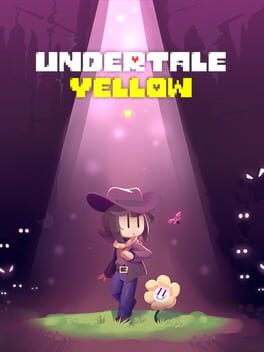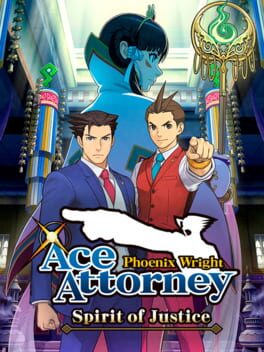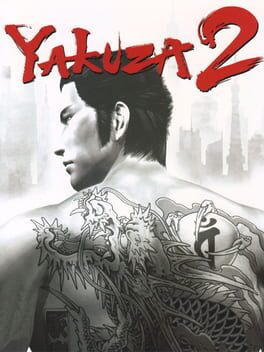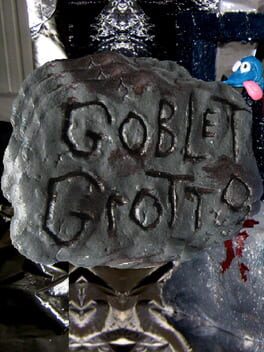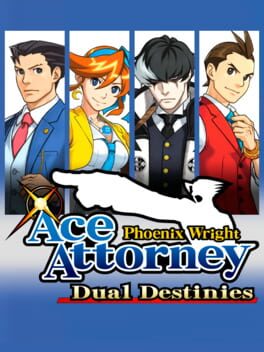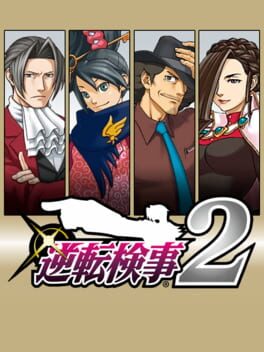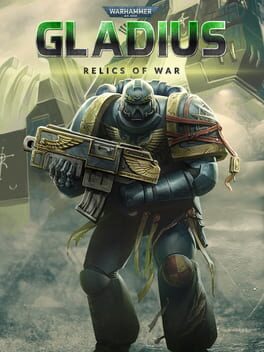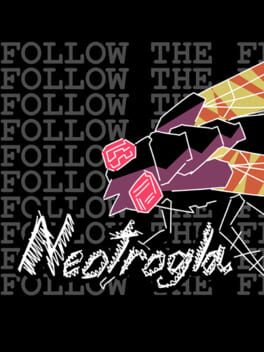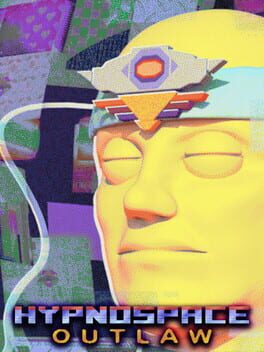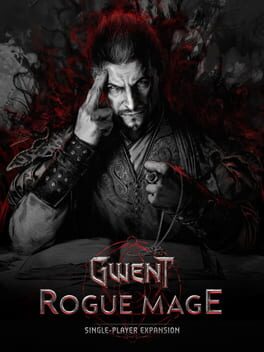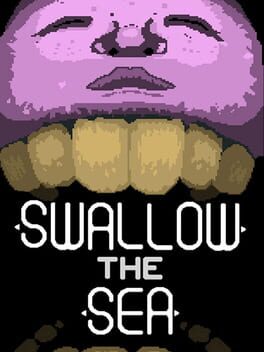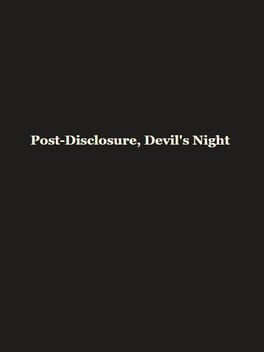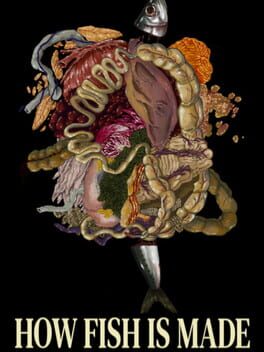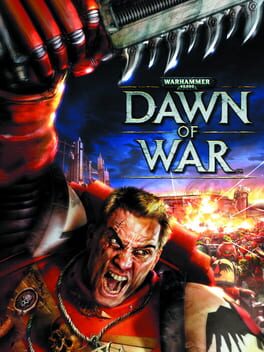Tauranoro
2023
Played this for nearly an hour before deciding enough was enough. The Yamazaki team have been one disappointment after another, managing to squander the themes which made the series compelling beyond the "wow, cool mystery!" aspect.
Spirit of Justice revels in the worst excesses the franchise: bloated scripts, a fetishisation of technology and black-and-white characterisation of the cast. Add the weird orientalist feel, the setting's naïve portrayal as well as the fact that almost fifteen years in we still have to deal with fixed speed textboxes and you've utterly lost me.
It's as if every title from Investigations 1 onwards were building up to this: a complete reimagining of the series, shaped one game at a time into something alien beyond the most surface aspects. The writing had been on the wall since the gutless Investigations 2, the hints it left of things to come taking monstrous shape in the dull Dual Destinies. Spirit of Justice is just the final form of this new beast, one living in a courtroom-shaped hyperreality entirely detached from its origins.
The game enjoys a healthy rating, the series still has fans clamoring for a seventh mainline entry. As for me, if things don't change drastically going forward I can safely say I'm good, thank you. Time for this old geezer to step off the ride. You kids have fun.
Spirit of Justice revels in the worst excesses the franchise: bloated scripts, a fetishisation of technology and black-and-white characterisation of the cast. Add the weird orientalist feel, the setting's naïve portrayal as well as the fact that almost fifteen years in we still have to deal with fixed speed textboxes and you've utterly lost me.
It's as if every title from Investigations 1 onwards were building up to this: a complete reimagining of the series, shaped one game at a time into something alien beyond the most surface aspects. The writing had been on the wall since the gutless Investigations 2, the hints it left of things to come taking monstrous shape in the dull Dual Destinies. Spirit of Justice is just the final form of this new beast, one living in a courtroom-shaped hyperreality entirely detached from its origins.
The game enjoys a healthy rating, the series still has fans clamoring for a seventh mainline entry. As for me, if things don't change drastically going forward I can safely say I'm good, thank you. Time for this old geezer to step off the ride. You kids have fun.
2006
Crazy how much the second game in the series pretty much traced the course of the franchise's next 9 years. Kiryu finally handles like the man dubbed Dragon of Dojima ought to be, a force of nature.
When I first started my RGG journey with 0 and the middling-to-abysmal Kiwamis, 2's story was 'merely' cool and enjoyable. Now that I'm caught up on the "Kiryu Saga", 2's tale stands out in its comparative straightforwardness, a quality the series too often lacks. All-time antagonist Ryuji Goda is a big reason as to why that is, but the overall essential cast, combined with the emotional rawness of the events shown, those are the real key ingredients.
Maybe it's the season, maybe it's the fading adrenaline from a shirtless fight on top of Kamurocho Hills ended with the angriest, most brutal Heat Action in the game, maybe I'm just tired... yet it doesn't feel like a proper year has passed if I don't finish a Like A Dragon title. Knowing the series still has so much to give fills me with trepidation as well as warmth. Despite the turmoil we live in, it's nice to do some virtual tourism, to immerse yourself in a different time and space. At this point, beating thugs senseless in the streets is just a nice bonus.
When I first started my RGG journey with 0 and the middling-to-abysmal Kiwamis, 2's story was 'merely' cool and enjoyable. Now that I'm caught up on the "Kiryu Saga", 2's tale stands out in its comparative straightforwardness, a quality the series too often lacks. All-time antagonist Ryuji Goda is a big reason as to why that is, but the overall essential cast, combined with the emotional rawness of the events shown, those are the real key ingredients.
Maybe it's the season, maybe it's the fading adrenaline from a shirtless fight on top of Kamurocho Hills ended with the angriest, most brutal Heat Action in the game, maybe I'm just tired... yet it doesn't feel like a proper year has passed if I don't finish a Like A Dragon title. Knowing the series still has so much to give fills me with trepidation as well as warmth. Despite the turmoil we live in, it's nice to do some virtual tourism, to immerse yourself in a different time and space. At this point, beating thugs senseless in the streets is just a nice bonus.
2012
2007
This review contains spoilers
You know when persona fans take the Hashino trilogy and say each one is the best in a certain category? The broken record of "3 has the best story, 4 has the best characters and setting, 5 has the best gameplay"? Well, throw that garbage out the window: Persona 3 is the best in everything except dungeons, and even there I'd make the case Tartarus is better than any Mind Palace, at least thematically. How P-studio managed to get so much stuff right on the first go and then fumble on subsequent releases is baffling.
I love this game and want to shower its story with praise, especially how it's not afraid to pull its punches from the start, the stakes and risks of your situation clearly established from the word ‘go’. It admittedly drags halfway through, I'd say the Summer section is probably the weakest part of the game, with the formula having fully set in and with it your complacency. Then October comes in like a truck, smacks you upside the head and yells: “you messed up, this shadow business is not a game, kid”. After that the story gets even better, each event that follows turning up the tension as you fight even harder and try to savour the last moments of your life, the calendar counting down to your eventual passing. Bit of a crap life, sure, but at least you’re not in it by yourself.
The characters of Persona 3 seem pretty shallow at first. Pretty much everyone plays their cards close to their chest, from the main cast to the social link options, with some coming off as especially unlikeable. Yet as you face hardships together and make an effort to better know your pals, as they experience the worst of what their situation has to offer, everyone grows and changes into stronger human beings, which is true even for the robot. Not really for the dog though, he just wants to help and is happy to be along. Good for him. In the case of the party, outside of the tragedy of Shinjiro’s death, and because of it, everyone finds a way to keep on living, striving for new goals with a clarity of purpose. In particular, the awakenings are amazing moments for each character, never feeling forced due to them going in lock-step with the plot, avoiding one of many missteps of future titles. Speaking of awakenings, let’s talk about Junpei.
Junpei starts out as the bro. Loud, jokey and obnoxious, always looking to prove his virility in a childish way. The eternal class clown. And much like a clown it’s an act, as he’s one of the most insecure members of the cast. Yet he never lowers his guard around others. It’s exactly because of his flaws he ends up in danger by the hands of Strega and it’s by facing his demons head on with Chidori that he starts to change. The jokey veneer never flakes off, yet as the months pile on, his core becomes ever more determined, driving him to stare directly into the jaws of death, literally, with a little help from his friends. This culminates with Chidori’s death, her spirit now alive within him, even passing her regenerative abilities onto him in battle, in one of the single best uses of a mechanic I’ve seen in any videogame. By the time March 5 2010 rolls around, Junpei is still the bro, yet he is much closer to really being “da man”.
Since I’ve mentioned battles, let’s settle the CPU party control debate to rest once and for all. In my objective opinion: it’s alright. It helps to further characterize each member other than your as their own person, warts and all. It’s a bit clunky, especially when the menu, as nice as it is, makes tactics switching feel like a bit of a chore. I know, I know, Mitsuru Marin Karin Mind Charge Ice Break, yeah we’ve all heard the joke. Thing is, it works. It’s a restraint which, coupled with the many design choices that are closer to Shin Megami Tensei: Nocturne than they are to Persona 4, keeps you on your toes and thinking tactically.
I apologize to fans of Persona 4 and Persona 5 for badmouthing those games. I like them too, yet after playing Persona 3 it’s apparent how both misunderstand and/or misuse the groundwork laid by this title. I get it, 4 had to be made in two years alongside FES, it’s a miracle the game even shipped in the first place, while 5 probably wanted to stick to the plan because that’s the series’ identity after nearly ten years between instalments. Yet this leaves them feeling less complete, like they’re carrying vestigial elements which are there because they have to be or it won’t be a Persona game anymore. I hope this isn’t taken as an insult or as a slight against the series, but as an invitation to grow, to not be afraid of mixing it up and shed off the old skin, just like 3 did. I believe this makes for stronger experiences which, like the Kirijo Group claims, favour the harmony of two over the perfection of one. In this case, harmony of mechanics and story for maximum thematic power. Put that shit in Persona 6, Atlus employee who is definitively real and reading this review.
I love this game and want to shower its story with praise, especially how it's not afraid to pull its punches from the start, the stakes and risks of your situation clearly established from the word ‘go’. It admittedly drags halfway through, I'd say the Summer section is probably the weakest part of the game, with the formula having fully set in and with it your complacency. Then October comes in like a truck, smacks you upside the head and yells: “you messed up, this shadow business is not a game, kid”. After that the story gets even better, each event that follows turning up the tension as you fight even harder and try to savour the last moments of your life, the calendar counting down to your eventual passing. Bit of a crap life, sure, but at least you’re not in it by yourself.
The characters of Persona 3 seem pretty shallow at first. Pretty much everyone plays their cards close to their chest, from the main cast to the social link options, with some coming off as especially unlikeable. Yet as you face hardships together and make an effort to better know your pals, as they experience the worst of what their situation has to offer, everyone grows and changes into stronger human beings, which is true even for the robot. Not really for the dog though, he just wants to help and is happy to be along. Good for him. In the case of the party, outside of the tragedy of Shinjiro’s death, and because of it, everyone finds a way to keep on living, striving for new goals with a clarity of purpose. In particular, the awakenings are amazing moments for each character, never feeling forced due to them going in lock-step with the plot, avoiding one of many missteps of future titles. Speaking of awakenings, let’s talk about Junpei.
Junpei starts out as the bro. Loud, jokey and obnoxious, always looking to prove his virility in a childish way. The eternal class clown. And much like a clown it’s an act, as he’s one of the most insecure members of the cast. Yet he never lowers his guard around others. It’s exactly because of his flaws he ends up in danger by the hands of Strega and it’s by facing his demons head on with Chidori that he starts to change. The jokey veneer never flakes off, yet as the months pile on, his core becomes ever more determined, driving him to stare directly into the jaws of death, literally, with a little help from his friends. This culminates with Chidori’s death, her spirit now alive within him, even passing her regenerative abilities onto him in battle, in one of the single best uses of a mechanic I’ve seen in any videogame. By the time March 5 2010 rolls around, Junpei is still the bro, yet he is much closer to really being “da man”.
Since I’ve mentioned battles, let’s settle the CPU party control debate to rest once and for all. In my objective opinion: it’s alright. It helps to further characterize each member other than your as their own person, warts and all. It’s a bit clunky, especially when the menu, as nice as it is, makes tactics switching feel like a bit of a chore. I know, I know, Mitsuru Marin Karin Mind Charge Ice Break, yeah we’ve all heard the joke. Thing is, it works. It’s a restraint which, coupled with the many design choices that are closer to Shin Megami Tensei: Nocturne than they are to Persona 4, keeps you on your toes and thinking tactically.
I apologize to fans of Persona 4 and Persona 5 for badmouthing those games. I like them too, yet after playing Persona 3 it’s apparent how both misunderstand and/or misuse the groundwork laid by this title. I get it, 4 had to be made in two years alongside FES, it’s a miracle the game even shipped in the first place, while 5 probably wanted to stick to the plan because that’s the series’ identity after nearly ten years between instalments. Yet this leaves them feeling less complete, like they’re carrying vestigial elements which are there because they have to be or it won’t be a Persona game anymore. I hope this isn’t taken as an insult or as a slight against the series, but as an invitation to grow, to not be afraid of mixing it up and shed off the old skin, just like 3 did. I believe this makes for stronger experiences which, like the Kirijo Group claims, favour the harmony of two over the perfection of one. In this case, harmony of mechanics and story for maximum thematic power. Put that shit in Persona 6, Atlus employee who is definitively real and reading this review.
When making a 40k game, one has to grapple with the fact that the setting's existing elements all exist for the sole purpose of being smacked one against the other in an endless, galaxy-spanning meat grinder.
For Gladius, this means being a 4X title with little to offer beyond base management and warfare. It's barebones, you don't even have access to diplomacy options, only your marines/troopers/warriors/boyz trading blows on lifeless hexagons.
Gladius also makes the mistake of being a dry 40k game. Baroque excess is a large part of the setting's atmosphere, but Gladius feels weak on that front: an utiliatrian UI, no original art, non descript sound effects and ok music. Overbearingly ok. An easy skip for all but the diehard fans.
For Gladius, this means being a 4X title with little to offer beyond base management and warfare. It's barebones, you don't even have access to diplomacy options, only your marines/troopers/warriors/boyz trading blows on lifeless hexagons.
Gladius also makes the mistake of being a dry 40k game. Baroque excess is a large part of the setting's atmosphere, but Gladius feels weak on that front: an utiliatrian UI, no original art, non descript sound effects and ok music. Overbearingly ok. An easy skip for all but the diehard fans.
2023
Dark, repugnant feasts punctuate the creepiest moments of the story, itself soaked in the festering decay of urban life. You can practically hear the cracking of chitin shells and splintered bone as you turn each brilliantly constructed page. Speaking of hearing, the soundtrack, coupled with the few, well-placed and moody pictures, enhances the storytelling from chilling to hair-raising and nightmarish levels of frightening.
Reading Neotrogla brought me back to the time I first discovered Stephen King, to when I listened to clipping.'s darkest tales of encounters with the supernatural and the mental and bodily toll it takes on the scarred protagonists. If Roxy ever decides to release an anthology of horror stories, even in a non-visual novel style, I'd rush to read it in a heartbeat.
Reading Neotrogla brought me back to the time I first discovered Stephen King, to when I listened to clipping.'s darkest tales of encounters with the supernatural and the mental and bodily toll it takes on the scarred protagonists. If Roxy ever decides to release an anthology of horror stories, even in a non-visual novel style, I'd rush to read it in a heartbeat.
2019
We're all blessed/cursed to live in the age where the Internet is ubiquitous. In it we pour pieces of ourselves, in a gigantic web of communications, friendships, relationships, rivalries, petty grievances and every human interaction. Hypnospace Outlaw is like a mirror held up to us, in which we see a microcosm of our Internet selves, frozen in time in the moment we left our digital footprints. It's a story where you visit a fictional past, one unabashedly based on our actual history, whose concerns are still distressingly relevant twenty years later. Alexandria still burns, our past is still lost each passing hour. One day, this site will be no more, Steam will be no more, we will likely be no more, no matter how remote that day may be or seem. This doesn't mean being here is meaningless; even if it were, what's the point in having all the miracolous opportunities we're afforded and not using them?
Enjoy today, now. And if something breaks? There's a saying where I come from: "Pope's dead, make another".
Keep on rocking, reader. Godspeed.
Enjoy today, now. And if something breaks? There's a saying where I come from: "Pope's dead, make another".
Keep on rocking, reader. Godspeed.
2022
These past few days I've been rereading Sapkowski's Time of Contempt, the fourth novel in the seven-part-saga of Geralt of Rivia. I had initially done so to prepare for the third season of Netflix's The Witcher. Now though, it's just an enjoyable reading experience, a fun revisit of a series I love dearly, despite its many flaws.
After finishing the exciting fourth chapter, with its tales of betrayal, intrigue and family, as I laid in bed I remembered a picture I had seen months prior. It was an illustration of Artaud Terranova, a minor character appearing in that chapter, as he tries and fails to capture one of the main characters (minor spoilers: see that owl in the background? If you played The Witcher 3 you already know who that is, and even if you didn't you can bet that bird fucks creepy Terranova up real good).
I recalled the context of me seeing the picture: a card reveal for the (at the time) latest expansion for Gwent: The Witcher Card Game, my all time favourite, uh, card game. Yet, I could not remember when that reveal took place, what expansion it could have possibly been. I realised it had been a long time since I last picked up the game, so long I had forgotten exactly when that was. There, in that moment, a piercing thought sunk in: after many years of playing and keeping up with it, I no longer know what Gwent is.
I first discovered Gwent in the Summer of 2017, after playing the excellent The Witcher 3: Wild Hunt. I could play the coolest minigame since Final Fantasy VIII's Triple Triad, for free! It wasn't exactly that, turns out. The game had been through an utterly unbalanced closed beta on pc before being released on major consoles as an open beta with an all-new ruleset. I would play it daily, win my 6 rounds for a free keg (the game's slang for card pack), log off, repeat. I started climbing ranks, slowly and painfully, being trounced a lot on the way and slowly unravelling the game's intricate and rewarding mechanics. In my eyes it was the thinking person's card game, a far cry from the chaotic and (comparatively) much greedier ways of Blizzard's Hearthstone. While free to play and replete with chances ofextortion monetization, you were given decent decks at the start, at least for low level play, and could quickly accrue enough resources to build stronger and stronger decks. Completing your card collection was actually easy, it just took a few months of playing, say, 30 minutes a day, in a way that was usually far from braindead.
And the cards, oh those beautiful cards! Each looks dynamic, has a strong presentation and told its own story. And then there were the premium versions. Those trascended the simple digital piece of cardboard: detailed animations, sound effects and sometimes even easter eggs, reaching a whole new level of spectacle.
An indulgent comparison here:
normal Iorveth
premium Iorveth
I stuck with it for the rest of 2017, continued through the 1.0 Homecoming relaunch, each new patch and update changing the nature of the game. Some changes were good, some infuriating, most update brought a mixture of both. And each update changed the nature of the game. To give you an idea, 2017's Midwinter update was probably the first major misstep, at least in my opinion and that of many who played at the time. In order to add around 100 new cards and maintain the balance, many existing ones had their effects altered and streamlined, or more aptly, flattened. Many of the more out there, wackier or strategic decks simply ceased to exist, you could not play the game as you once did.
2018 saw the 1.0 release of the game and in December, the release of Thronebreaker: The Witcher Tales, a full singleplayer experience, with its own gimmicks and story, that of Queen Meve and her quest to take back her birthright from the evil clutches of Nilfgaard. It wasn't quite the usual tone of the Witcher, focusing entirely on a royal figure and taking many liberties with her. Yet it was an exciting time to be a fan, as the game was really fun and thematic, adding a slew of new cards and strategies. Add to that the promise of more similar, grandiose adventures to come should Thronebreaker be a success and you could tell this was a time of hope for me. Sadly, so far only one more single player expansion has been released. You're looking at its page right now. This is ostensibly a review of that same expansion. We'll talk about it in about, checks notes, a couple paragraphs.
I stuck with Gwent some more, playing it on and off throughout 2019, even creating a second GOG account in order to transfer my storied profile on pc before the PS4 servers were shut off. Sadly I played Gwent less and less, my laptop struggling to play a title that had become increasingly demanding when it came to graphics. 2020 saw a last, brief stint on smartphone when covid hit and I was desperate to find any distraction from boredom, study, and darker thoughts. By 2021, when I bought a desktop pc that could handle most modern games, my drive to play Gwent had mostly faded, replaced by newer, fresher and more intriguing experiences.
Then, Gwent: Rogue Mage dropped during the Summer of 2022. It was unceremoniously dropped on the GOG storepage, with seemingly no fanfare. I immediatly bought the deluxe edition. It was out of a sense of love, like trying to rekindle a friendship which had waxed, waned and eventually dissolved itself. I wanted Rogue Mage to make me fall in love with Gwent again.
It didn't, it probably never could have. I have little patience for Roguelites, which this game is. If I went back to October 2017 and told myself Gwent would spawn a roguelite spinoff, I'd have laughed in my older self's face. The idea was inconceivable.
I did not dig deep into Rogue Mage's mechanics. I dipped my toes into it, half-heartedly attempted a run, then uninstalled the game. I didn't feel betrayed. I felt numb. Nothing, except maybe a hint of frustration. I felt stupid for wasting so much money on a game I knew I wouldn't have liked had I bothered to do a minimum of research on.
I was even under the illusion I liked it, gave it 3.5 stars on this very website. Sure, not my cup of tea, but hey, it's good because it's Gwent!
Perhaps mankind's most powerful ability is that of self-delusion, distorting reality in such a profound way one doesn't even realise the reality of one's own condition. I thought I still liked Gwent until yesterday. Now I have to admit I don't know where I stand anymore. All I know is I don't particuarly like this one version of it.
We live in an age of Games as a Service, terminology ripped straight from the lingo of cloud software development. Game development has always been a balancing act of of software, business and (ideally) art, but nowadays the mainstream industry, of which CD Projekt Red is an ingrained part of, feels like an endless parade of games that would like nothing more than chain you down with dailies, endless grinds, innumerable premium currencies. Paid freemium titles such as Square Enix's Marvel's Avengers being the most egregious example of this. A game has to last forever, include roadmaps, reinvent itself constantly. I don't know if that's a good or bad thing. I hate the predatory monetary practices, the enforced developer crunch, yet find fascinating how a game can play with its own identity one update after another and maintain a lively audience willing to stick with it year after year. I see all the people, strangers and friends alike, enjoying the likes of Fortnite and Genshin Impact and it makes me feel like an ass for saying I don't enjoy them, like I'm fundamentally missing something.
Gwent's ultimate trajectory didn't work for me, and that saddens me. I got burnt with Gwent. All kinds of burnt. Burnt out after grinding long seasons of daily matches. Burnt by impulsive purchases blowing up in my face. Burnt by the realisation it had become near unrecognisable, after seeing its evolution and mutation in real time.
I'm probably never going to play it again, something I'm only managing to accept now, after years of frustation. Rogue Mage is nothing exceptional in itself, but it was my breaking point. For that, it's notable and I have to thank it. I can make a clean break and accept that, just as all good things must come to an end, so too has my history with the original card game.
I don't know if I like Gwent anymore. I don't know if it's good or bad. I no longer watch the tournaments, visit the subreddit or post in its discord server. I broke away slowly. Only now, writing down these long fermenting thoughts do I feel like I've lifted a weight from my chest. Now I can forever cherish the good memories, that's the least I can do.
Thank you Gwent, so long and good luck on the path.
After finishing the exciting fourth chapter, with its tales of betrayal, intrigue and family, as I laid in bed I remembered a picture I had seen months prior. It was an illustration of Artaud Terranova, a minor character appearing in that chapter, as he tries and fails to capture one of the main characters (minor spoilers: see that owl in the background? If you played The Witcher 3 you already know who that is, and even if you didn't you can bet that bird fucks creepy Terranova up real good).
I recalled the context of me seeing the picture: a card reveal for the (at the time) latest expansion for Gwent: The Witcher Card Game, my all time favourite, uh, card game. Yet, I could not remember when that reveal took place, what expansion it could have possibly been. I realised it had been a long time since I last picked up the game, so long I had forgotten exactly when that was. There, in that moment, a piercing thought sunk in: after many years of playing and keeping up with it, I no longer know what Gwent is.
I first discovered Gwent in the Summer of 2017, after playing the excellent The Witcher 3: Wild Hunt. I could play the coolest minigame since Final Fantasy VIII's Triple Triad, for free! It wasn't exactly that, turns out. The game had been through an utterly unbalanced closed beta on pc before being released on major consoles as an open beta with an all-new ruleset. I would play it daily, win my 6 rounds for a free keg (the game's slang for card pack), log off, repeat. I started climbing ranks, slowly and painfully, being trounced a lot on the way and slowly unravelling the game's intricate and rewarding mechanics. In my eyes it was the thinking person's card game, a far cry from the chaotic and (comparatively) much greedier ways of Blizzard's Hearthstone. While free to play and replete with chances of
And the cards, oh those beautiful cards! Each looks dynamic, has a strong presentation and told its own story. And then there were the premium versions. Those trascended the simple digital piece of cardboard: detailed animations, sound effects and sometimes even easter eggs, reaching a whole new level of spectacle.
An indulgent comparison here:
normal Iorveth
premium Iorveth
I stuck with it for the rest of 2017, continued through the 1.0 Homecoming relaunch, each new patch and update changing the nature of the game. Some changes were good, some infuriating, most update brought a mixture of both. And each update changed the nature of the game. To give you an idea, 2017's Midwinter update was probably the first major misstep, at least in my opinion and that of many who played at the time. In order to add around 100 new cards and maintain the balance, many existing ones had their effects altered and streamlined, or more aptly, flattened. Many of the more out there, wackier or strategic decks simply ceased to exist, you could not play the game as you once did.
2018 saw the 1.0 release of the game and in December, the release of Thronebreaker: The Witcher Tales, a full singleplayer experience, with its own gimmicks and story, that of Queen Meve and her quest to take back her birthright from the evil clutches of Nilfgaard. It wasn't quite the usual tone of the Witcher, focusing entirely on a royal figure and taking many liberties with her. Yet it was an exciting time to be a fan, as the game was really fun and thematic, adding a slew of new cards and strategies. Add to that the promise of more similar, grandiose adventures to come should Thronebreaker be a success and you could tell this was a time of hope for me. Sadly, so far only one more single player expansion has been released. You're looking at its page right now. This is ostensibly a review of that same expansion. We'll talk about it in about, checks notes, a couple paragraphs.
I stuck with Gwent some more, playing it on and off throughout 2019, even creating a second GOG account in order to transfer my storied profile on pc before the PS4 servers were shut off. Sadly I played Gwent less and less, my laptop struggling to play a title that had become increasingly demanding when it came to graphics. 2020 saw a last, brief stint on smartphone when covid hit and I was desperate to find any distraction from boredom, study, and darker thoughts. By 2021, when I bought a desktop pc that could handle most modern games, my drive to play Gwent had mostly faded, replaced by newer, fresher and more intriguing experiences.
Then, Gwent: Rogue Mage dropped during the Summer of 2022. It was unceremoniously dropped on the GOG storepage, with seemingly no fanfare. I immediatly bought the deluxe edition. It was out of a sense of love, like trying to rekindle a friendship which had waxed, waned and eventually dissolved itself. I wanted Rogue Mage to make me fall in love with Gwent again.
It didn't, it probably never could have. I have little patience for Roguelites, which this game is. If I went back to October 2017 and told myself Gwent would spawn a roguelite spinoff, I'd have laughed in my older self's face. The idea was inconceivable.
I did not dig deep into Rogue Mage's mechanics. I dipped my toes into it, half-heartedly attempted a run, then uninstalled the game. I didn't feel betrayed. I felt numb. Nothing, except maybe a hint of frustration. I felt stupid for wasting so much money on a game I knew I wouldn't have liked had I bothered to do a minimum of research on.
I was even under the illusion I liked it, gave it 3.5 stars on this very website. Sure, not my cup of tea, but hey, it's good because it's Gwent!
Perhaps mankind's most powerful ability is that of self-delusion, distorting reality in such a profound way one doesn't even realise the reality of one's own condition. I thought I still liked Gwent until yesterday. Now I have to admit I don't know where I stand anymore. All I know is I don't particuarly like this one version of it.
We live in an age of Games as a Service, terminology ripped straight from the lingo of cloud software development. Game development has always been a balancing act of of software, business and (ideally) art, but nowadays the mainstream industry, of which CD Projekt Red is an ingrained part of, feels like an endless parade of games that would like nothing more than chain you down with dailies, endless grinds, innumerable premium currencies. Paid freemium titles such as Square Enix's Marvel's Avengers being the most egregious example of this. A game has to last forever, include roadmaps, reinvent itself constantly. I don't know if that's a good or bad thing. I hate the predatory monetary practices, the enforced developer crunch, yet find fascinating how a game can play with its own identity one update after another and maintain a lively audience willing to stick with it year after year. I see all the people, strangers and friends alike, enjoying the likes of Fortnite and Genshin Impact and it makes me feel like an ass for saying I don't enjoy them, like I'm fundamentally missing something.
Gwent's ultimate trajectory didn't work for me, and that saddens me. I got burnt with Gwent. All kinds of burnt. Burnt out after grinding long seasons of daily matches. Burnt by impulsive purchases blowing up in my face. Burnt by the realisation it had become near unrecognisable, after seeing its evolution and mutation in real time.
I'm probably never going to play it again, something I'm only managing to accept now, after years of frustation. Rogue Mage is nothing exceptional in itself, but it was my breaking point. For that, it's notable and I have to thank it. I can make a clean break and accept that, just as all good things must come to an end, so too has my history with the original card game.
I don't know if I like Gwent anymore. I don't know if it's good or bad. I no longer watch the tournaments, visit the subreddit or post in its discord server. I broke away slowly. Only now, writing down these long fermenting thoughts do I feel like I've lifted a weight from my chest. Now I can forever cherish the good memories, that's the least I can do.
Thank you Gwent, so long and good luck on the path.
2020
Swallow the Sea is, at heart, a spawn of Spore. Maxis' overhyped and underdelivering 2008 flagship title left a bitter taste in the mouth of many who played it expecting a gaming revolution. Yet the core idea of gamifying evolution persists, the meme is still appealing enough that some still harbor the dream of being able of going from the most humble form of life forms to something much greater. Determined, ambitious, or just straight up stubborn (mostly inexperinced) designers would attempt to make "Spore, but good", with titles like Revolutionary Games' Thrive and Wickworks' Crescent Loom. The result are projects that have been in development for years and have little hope of being completed. The process of designing the very systems of life itself becoming a neverending series of stumbles through the darkness. Some might even call it a nightmare. How ironic that the game that most strives to be one would be the only release to see the light of day.
Swallow the Sea works because of its laser-focused approach, that of a survival horror experienced through the lens of Spore's most compelling early gameplay loop: being a small, slowly growing cellular creature that goes from scavenging scraps to become the "big dog" leaving such scraps behind; from hunted to hunter. It helps that the setting is a positively rotten seascape inhabited by a fauna that strikes a delicate balance between cute and horrifying.
What separates Swallow the Sea from the rest of the pack is its willingness to explore what it means to evolve beyond just gameplay mechanics. It employs a grim (and almost comically unsubtle) commentary on the cycle of life, which is only reinforced with its ending. Did evolving actually make us "better"?
Does it even matter?
Swallow the Sea works because of its laser-focused approach, that of a survival horror experienced through the lens of Spore's most compelling early gameplay loop: being a small, slowly growing cellular creature that goes from scavenging scraps to become the "big dog" leaving such scraps behind; from hunted to hunter. It helps that the setting is a positively rotten seascape inhabited by a fauna that strikes a delicate balance between cute and horrifying.
What separates Swallow the Sea from the rest of the pack is its willingness to explore what it means to evolve beyond just gameplay mechanics. It employs a grim (and almost comically unsubtle) commentary on the cycle of life, which is only reinforced with its ending. Did evolving actually make us "better"?
Does it even matter?
This review contains spoilers
At first I thought the choice you make mid-game added nothing but on replay it actually changes the main character's cosplay. This brings it to something I enjoyed but didn't have thoughts on to an A+, no notes, medium-defining work. The choose-your-own-adventure formula has peaked and it will be a while before we get innovation this distruptive and brilliant again.
2022
What is the predominant feeling upon seeing the words: "mission complete" at the end of a videogame level? Take a moment to ask yourself what those words would look like, how they morph with different genres, picture them in all their multitude forms and shapes.
Does it look like this? Like this perhaps? I imagine most of you thought of, if not those specific examples, similarly triumphant ones.
Every mission in Dawn of War begins with the Space Marines, humanity's most elite forces, devising a new plan to stop the enemies of the Imperium of Man. That is, everyone besides the Imperium itself; whether those be ferocious space orks, the devious Eldar, or the Great Enemy, the forces of Chaos. Each time, the plan inevitably involves the slaughter of enemy forces, asking the player to walk the delicate balance of any good RTS: resource managing, base building, micro.
Every mission in Dawn of War ends on the same note: the space marines win, the enemy is routed, at least from that particular theatre of war. Yet something is amiss. Your actions endanger huge swathes of civilian populations, cause the destruction of gigantic cities and settlements, see the fate of entire worlds being sealed. Words of doubt are cast by powerful and paranoid inquisitors over your actions, the dire warnings spoken by knowledgeable Eldar farseers go unheeded, the schemes of Chaos sorcerers endlessly unfold. All while your own plans reveal their faults when it is too late to remedy.
Every mission is punctuated by a fade to black, the music reduced to whisper and quickly to silence. Two words bleakly manifest themselves onto the screen: "Mission Success". A taste of ashes in your mouth, a feeling of having made a terrible mistake once again.
Are we the baddies?
If you have any knowledge of the nerd space (and you're on a videogame logging site so you're way more invested in games than you might care to admit), you've probably seen a Warhammer Space Marine. If you've never looked into the series, they always look like the heroes of the setting. Imposing armour and weapons, a honourable facade, serious, (mostly) white male faces. Stereotypical 7th gen videogame heroes. In Dawn of War, they are the stars of the singleplayer campaign, the only faction you're allowed to control in the base game outside of free battles. But if you've read so far (boobies!, ha!, got your attention sucker) you might have realised there's something more sinister under their "perfect" image that the series' iconography seems to be obsessed with.
There is an adage stated by players of Warhammer 40.000's original tabletop game: a child walks into a store, sees a game being played, asks: "Who are the good guys?". The players stifle a laugh: "There are none. 'In the grim darkness of the far future there is only war'". In a sense, they'd be right, the game is (sometimes) written and thought of as a wargame first, where the major concern is: "how does every faction get into a fight with every other faction, itself included?". Writing each one with varying degrees of unreedimability is a great method to do so, as if nobody is overtly good, then us players can drop all pretenses of moral righteousness and just focus on having a good time with our overpriced plastic miniatures.
The player who then decides to dedicate more than two braincells to even just surface level aspects of the background can realise that, for example, space marines are essentially indoctrinated into an ultrafascist, fanatical ideology. How could they be the good guys?
Marketing baby, that's how, who-hoo!
Space marine miniatures are easy to paint, have an all-rounder gameplay style, look human (more recognisable to us, therefore more appealing) and are highly customizable. Ever since 1987 they have been the face of Warhammer. They grace videogame boxarts, books, shirts, fucking Panini sticker collections.
It is the far easier, lazier, marketable and profitable solution to paint the horrible space marines as actually heroic and noble. Many go this route, fans included. As much as I love the setting and its aesthetic, I am disgusted by certain parts of the fandom that blindly worship the Imperium of Man, a regime that gets a perfect 14/14 points in Umberto Eco's list of a fascist states's features. (some of the most reactionary, anti-SJW Internet figures often profess their love for Warhammer. Take a wild guess which faction they tend to love the most). It would be like a Fallout: New Vegas fan siding with the Legion because they believe IRL in what Caesar stands for ideologically.
This is why Dawn of War is great. Not just for being a solid as hell rts, which manages to take the strengths of its source material, creating something wholly new with it. Not just for having an amazing presentation that still puts 90% of other licensed titles to shame. Dawn of War GETS Warhammer 40.000. It realises it's both a dumb toy soldier game with space elves and mushroom orcs, while also being the stylized, depresssing picture of a world of obscurantism, a possible fate derived from our aggressive apathy.
The world is a beautiful place. Don't let the bastards make you lose hope. Fight.
Does it look like this? Like this perhaps? I imagine most of you thought of, if not those specific examples, similarly triumphant ones.
Every mission in Dawn of War begins with the Space Marines, humanity's most elite forces, devising a new plan to stop the enemies of the Imperium of Man. That is, everyone besides the Imperium itself; whether those be ferocious space orks, the devious Eldar, or the Great Enemy, the forces of Chaos. Each time, the plan inevitably involves the slaughter of enemy forces, asking the player to walk the delicate balance of any good RTS: resource managing, base building, micro.
Every mission in Dawn of War ends on the same note: the space marines win, the enemy is routed, at least from that particular theatre of war. Yet something is amiss. Your actions endanger huge swathes of civilian populations, cause the destruction of gigantic cities and settlements, see the fate of entire worlds being sealed. Words of doubt are cast by powerful and paranoid inquisitors over your actions, the dire warnings spoken by knowledgeable Eldar farseers go unheeded, the schemes of Chaos sorcerers endlessly unfold. All while your own plans reveal their faults when it is too late to remedy.
Every mission is punctuated by a fade to black, the music reduced to whisper and quickly to silence. Two words bleakly manifest themselves onto the screen: "Mission Success". A taste of ashes in your mouth, a feeling of having made a terrible mistake once again.
Are we the baddies?
If you have any knowledge of the nerd space (and you're on a videogame logging site so you're way more invested in games than you might care to admit), you've probably seen a Warhammer Space Marine. If you've never looked into the series, they always look like the heroes of the setting. Imposing armour and weapons, a honourable facade, serious, (mostly) white male faces. Stereotypical 7th gen videogame heroes. In Dawn of War, they are the stars of the singleplayer campaign, the only faction you're allowed to control in the base game outside of free battles. But if you've read so far (boobies!, ha!, got your attention sucker) you might have realised there's something more sinister under their "perfect" image that the series' iconography seems to be obsessed with.
There is an adage stated by players of Warhammer 40.000's original tabletop game: a child walks into a store, sees a game being played, asks: "Who are the good guys?". The players stifle a laugh: "There are none. 'In the grim darkness of the far future there is only war'". In a sense, they'd be right, the game is (sometimes) written and thought of as a wargame first, where the major concern is: "how does every faction get into a fight with every other faction, itself included?". Writing each one with varying degrees of unreedimability is a great method to do so, as if nobody is overtly good, then us players can drop all pretenses of moral righteousness and just focus on having a good time with our overpriced plastic miniatures.
The player who then decides to dedicate more than two braincells to even just surface level aspects of the background can realise that, for example, space marines are essentially indoctrinated into an ultrafascist, fanatical ideology. How could they be the good guys?
Marketing baby, that's how, who-hoo!
Space marine miniatures are easy to paint, have an all-rounder gameplay style, look human (more recognisable to us, therefore more appealing) and are highly customizable. Ever since 1987 they have been the face of Warhammer. They grace videogame boxarts, books, shirts, fucking Panini sticker collections.
It is the far easier, lazier, marketable and profitable solution to paint the horrible space marines as actually heroic and noble. Many go this route, fans included. As much as I love the setting and its aesthetic, I am disgusted by certain parts of the fandom that blindly worship the Imperium of Man, a regime that gets a perfect 14/14 points in Umberto Eco's list of a fascist states's features. (some of the most reactionary, anti-SJW Internet figures often profess their love for Warhammer. Take a wild guess which faction they tend to love the most). It would be like a Fallout: New Vegas fan siding with the Legion because they believe IRL in what Caesar stands for ideologically.
This is why Dawn of War is great. Not just for being a solid as hell rts, which manages to take the strengths of its source material, creating something wholly new with it. Not just for having an amazing presentation that still puts 90% of other licensed titles to shame. Dawn of War GETS Warhammer 40.000. It realises it's both a dumb toy soldier game with space elves and mushroom orcs, while also being the stylized, depresssing picture of a world of obscurantism, a possible fate derived from our aggressive apathy.
The world is a beautiful place. Don't let the bastards make you lose hope. Fight.
